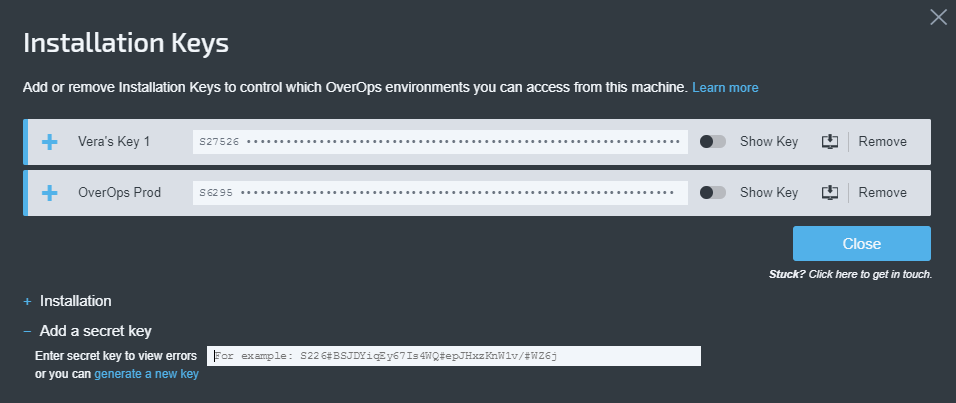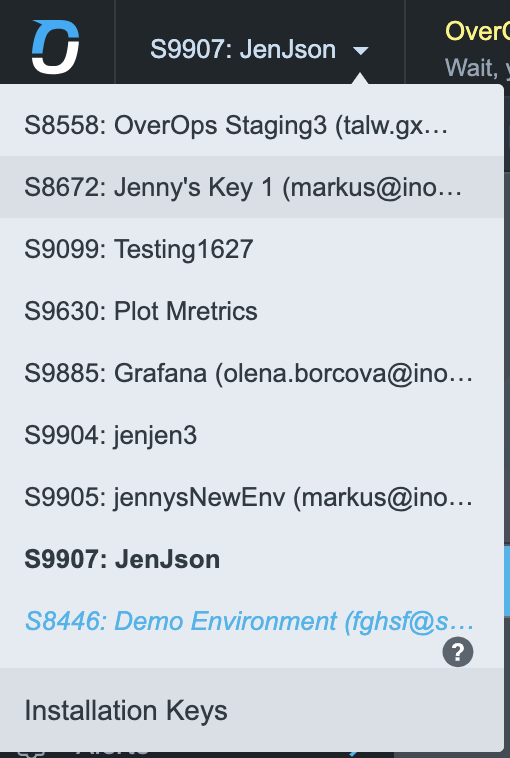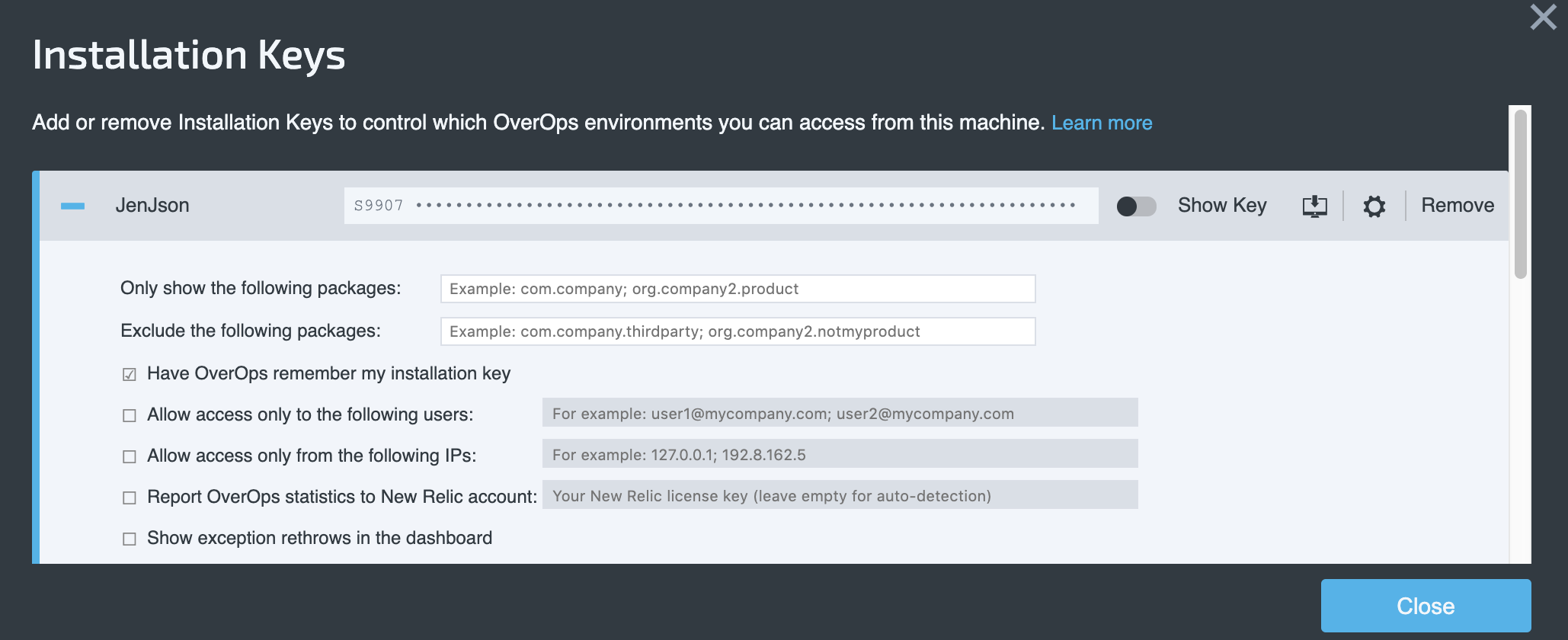Generate an Installation Key
Introduction
When signing up to OverOps you are automatically issued an installation key. Look out for an email from [email protected] for your automatically issued signup key. Unless you are part of an organization which is already using OverOps, and you have not yet created an OverOps user, sign up as a a new user to receive your installation key.
About the Installation Key
OverOps uses a private 256 bit AES encryption scheme to protect and ensure the privacy of any data (both source code and variable state) collected on your machine. The key is shown in the Installation Keys dialog box, displayed after creating your account and it is also emailed to you. Save this key, you will need it for the installation process, and may be asked to enter it when logging into OverOps.
Installation KeyThis initial installation key is generated by default and stored on the OverOps servers to simplify the process of trialing the product and sharing the Dashboard with team members.
You can generate your own installation key privately and choose not to store it on OverOps. You can generate your own installation keys outside of OverOps by using our private key generator utility. See Generating a new key manually for details.
If you wish to share a private installation key with any team members, you will need to send them the key manually.
Generating a New Key
To generate a new key in addition to the one automatically assigned to you at signup:
- Click the drop-down Key List at the top left corner of the OverOps Dashboard, and select Installation Keys.
- This opens the Installation Keys dialog box. Click Add a Secret Key and then select the link generate a new key.

- In the Generate a New Key dialog box, name the key and click Save.
You can prevent OverOps from saving the key by clearing the checkbox. Storing the installation key on the OverOps servers simplifies the process of trialing the product and sharing the dashboard with team members. (You can also change this setting later through the Installation Keys Advanced Settings.
ImportantIf you clear the option "Have OverOps remember my installation key", OverOps will be unable to retrieve this key in case it's lost.
Generate new key dialog box
- Click Save.
- Using the new installation key, continue to installing OverOps according to your system.
Generating a New Key Manually
You can also generate your key privately to ensure that no one outside your team can decrypt your data. Key generation is carried out using the open-source Key generator utility available here.
ImportantPrivately generated keys cannot be retrieved by OverOps.
Once you’ve generated your new key, use it to install OverOps on your servers.
Locating Your Installation Key
If you lose or forget your installation key, it can be retrieved it through either of the following methods:
- Search for the key in your Inbox. The key which was generated for you when you signed up was emailed to you from [email protected] or [email protected].
- When you install OverOps on a machine, the key is stored in the installation.key file located in
- Windows:
C:\Takipi\installation.key - Mac:
/Library/Takipi/installation.key - Linux:
/opt/takipi/installation.key
You can also generate a new key. However, data which was collected and encrypted using your previous key will no longer be available to you.
Best PracticeSee also our related best practice: Strategies for Using Installation Keys.
Installation Keys Advanced Settings
Storing the installation key on the OverOps servers will simplify the process of trialing the product and sharing the dashboard with team members. However, you can force OverOps to forget the key using the installation keys Advanced Settings, which can be accessed via the dropdown in the top left part of the OverOps Dashboard.

Click 'Installation Keys'

Clear the option "Have OverOps remember my installation key"
WarningIf cleared, OverOps will be unable to retrieve this key in case it's lost.
Updated 9 months ago
